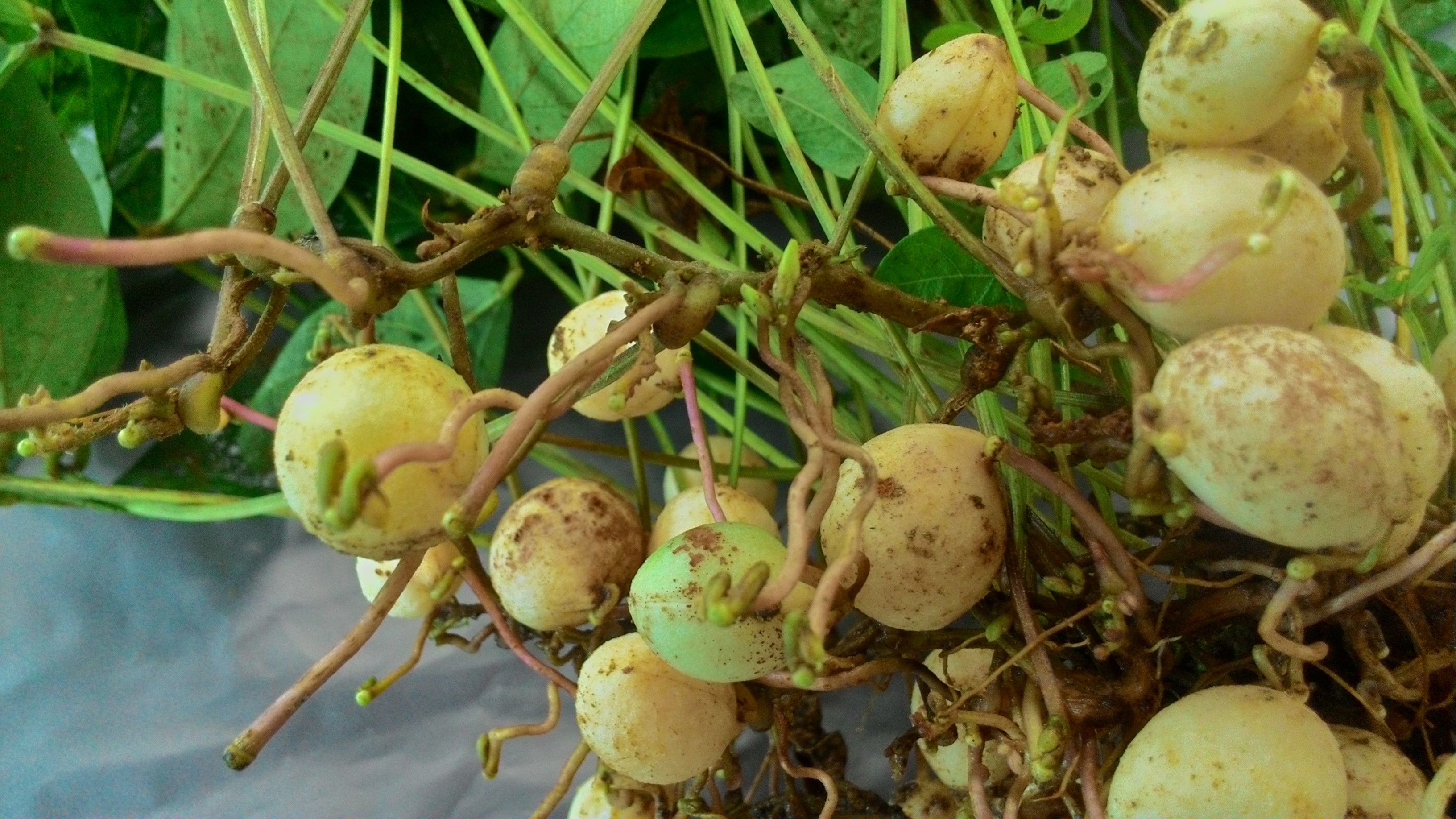
March 23, 2020, by Lexi Earl
Plants for future food security: the case of Bambara groundnut
Future Food Beacon researchers in Malaysia and UK are working with partners in Africa and Asia to help secure the future of our food supply. They are doing this by exploring the wider use of crop diversity to fill food production and nutrient gaps, making a diverse range of food crops available and accessible to all.

Bambara groundnut growing in fields
One of our flagship projects (BamBREED) is focused on Bambara groundnut or bambara nut (Vigna subterranea), a protein rich legume of African origin. Bambara is known to be drought-tolerant, with good nutritional composition and capable of fixing atmospheric nitrogen. It is the third most important of cultivated legumes in Africa, next to groundnut and cowpea. Because of its inherent tolerance to stressful environments and the ability to produce some yield in soils that are too poor for cultivation of drought susceptible species such as peanut, bambara groundnut has the potential to help secure our future food and nutritional needs in the face of climate change, as part of a more diverse and resilient agriculture.

Bambara groundnut: flower, pod, and seeds
This project builds on previous work at the University of Nottingham and Crops for the Future in Malaysia and aims to complete the translation of over 20 years of research on this crop at Nottingham and with partners world-wide, stretching from basic genomics through to field testing and, soon, the growing of new varieties in farmer’s fields.

Variation in pod set of Bambara genotypes
To date, there are no registered or improved varieties of Bambara groundnut. Farmers still use landraces which have been developed locally through seed selection over many generations. Some of these landraces carry important adaptive traits but overall, they are low yielding. An additional problem is that Bambara groundnut has the ‘hard-to-cook’ (HTC) phenomenon, which may provide some protection from storage pests, but requires often expensive and hard to obtain fuel to cook. The range of countries in which the crop can be grown is also limited in some cases by an unusual photoperiod requirement for pod development. Led by Prof Festo Massawe (University of Nottingham Malaysia) and Dr Sean Mayes (University of Nottingham, UK), the Future Food Beacon team is working with breeders, seed companies and farmers in Ghana, South Africa, Tanzania, Indonesia and Malaysia to develop and release new and improved varieties in order to realise the full potential of this important crop. We have focused breeding efforts and plans for variety registration in partnership with the University of Kwa-Zulu Natal in South Africa, and the Crops Research Institute in Ghana.

Bambara groundnut in Indonesia likely to have been introduced from Southern Africa. World map diagram from www.mapchart.net and Genome, https://doi.org/10.1139/gen-2019-0137.
The future of this project looks promising. First trials have shown good variation for traits in the field in four countries and the most promising lines are now being taken forward. Watch this space for more stories as the project develops!

Good Evening, I have Bambara groundnut in Limpopo, please help me to become a supplier, I have 26 Hectors and farming them for 3 years now, please help me out
Dear Desmond,
Our links in South Africa are with KwaZulu-Natal University and Dr Tafadzwa mabhaudhi@ukzn.ac.za
You might also contact WhatIF foods; https://www.whatif-foods.com/ who currently source from Ghana, but are gene to expand capacity.
Can you tell me a little more about what you are growing, yields etc?
best wishes
Sean
[…] proteins as a food source. Projects span a wide range of areas from using under used crops like Bambara groundnut to how people would feel about putting edible insects on the […]
[…] proteins as a food source. Projects span a wide range of areas from using under used crops like Bambara groundnut to how people would feel about putting edible insects on the […]
Big Africa bean energy